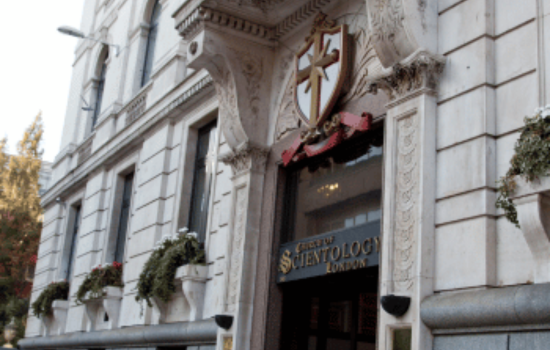Deciding to leave the Church of Scientology is a monumental step that can evoke a whirlwind of emotions—from fear and uncertainty to a hopeful glimpse of freedom. It’s a journey fraught with questions and challenges, leaving many feeling alone in their quest for a life beyond the church’s confines. In this essential guide, we delve into the heart of the matter, addressing the common reasons why individuals choose to step away from the religion, the signs that it might be time to reevaluate your involvement, and practical, supportive tips for navigating the complex process of leaving. Whether you’re on the fence or have firmly made up your mind, this post aims to empower you with knowledge, understanding, and a sense of community as you consider this significant life change. Let’s embark on this journey together, exploring the path to personal freedom and well-being with those that have left the church.

Why people leave Scientology
Taking the step to leave the church is often a culmination of deep reflection, inner conflict, and a profound desire for a change that aligns more closely with one’s personal values and quest for truth. For many, this decision does not come lightly; it’s born from a journey of self-discovery and, sometimes, disillusionment with practices that no longer serve their spiritual or emotional health. If you find yourself contemplating this significant change, know that you’re not alone. Many have navigated this challenging path before you, driven by various reasons that resonate deeply with their sense of self and well-being.
Common reasons why people decide to quit include:
- Suppression of Personal Freedom: Many former Scientologists cite the restrictive practices and policies of the Church, which can stifle personal freedom and expression, as a key factor in their decision to leave. The church often violates the civil rights of its members, causing emotional distress, and engages in human trafficking.
- Disillusionment with Leadership: The actions and directives of the Church’s leadership, notably figures like church leader David Miscavige, can lead to a sense of disillusionment and mistrust among members.
- Financial Strain: The financial commitment required by the Church for Scientology courses, auditing, and other services can become unsustainable, causing financial distress for its members.
- Emotional and Mental Health Concerns: The Church’s stance and practices regarding mental health and therapy can conflict with individuals’ understanding and beliefs about emotional wellness and the need for external support.
- Isolation from Non-Scientologist Friends and Family: The policy of disconnection, which encourages members to cut ties with non-believers, including close family and friends, often leads to painful emotional consequences and a reevaluation of one’s involvement in the Church.
- Information and Personal Stories from Former Members: Accounts from former Scientologists, including high-profile figures like Leah Remini, Mike Rinder, who together have the Leaving Scientology HBO documentary, and Marty Rathbun shed light on the inner workings of the Church and inspire others to question their continued association.
Each of these reasons underscores a deep-seated need for autonomy, truth, and genuine well-being that goes beyond the confines of organized belief systems. If you’re contemplating leaving the organization founded by science fiction writer L Ron Hubbard, these factors may resonate with your own experiences and feelings, guiding you towards a decision that feels right for you.
Current and former members of the Church of Scientology include Tom Cruise, Katie Holmes, JOhn Travolta, Lisa Marie Presley, comedian Jerry Seinfeld, Nicole Kidman, Laura Prepon, Paul Haggis, Mimi Rogers, Christopher Reeve, and Bruce Willis.
Signs you might be ready to quit Scientology
Recognizing the moment when you might be ready to leave the Church of Scientology can feel like navigating through a fog—uncertain and daunting. Yet, amid this uncertainty, certain signs emerge, like beacons of light, guiding you towards a decision that aligns with your true self. It’s a deeply personal journey, marked by introspection and moments of clarity that signal your readiness for a new path. If you’re experiencing any of the following indicators, it might be time to consider ceasing to practice Scientology and embarking on a journey toward personal freedom and authenticity.
- Persistent Doubts and Questions: If you find yourself constantly questioning the teachings, policies, or actions of the Church and these doubts persist despite your attempts to find satisfactory answers, this is a significant sign that your beliefs may no longer align with Scientology.
- Feeling Misaligned with Your Values: When the Church’s practices and your personal values increasingly diverge, creating a moral or ethical conflict that you can’t reconcile, it’s a clear indicator that you might be ready to leave.
- Emotional and Psychological Distress: Experiencing heightened levels of stress, anxiety, or depression linked to your involvement with the Church, especially if these feelings lessen when you consider leaving, suggests you’re ready for a change.
- Desire for Independence and Autonomy: Yearning for greater personal freedom, the ability to make decisions without the Church’s influence, or wishing to explore other spiritual or philosophical beliefs indicates readiness to move on.
- Strained or Lost Relationships: If your membership has led to isolation from family and friends outside the Church, and the desire to rebuild these connections outweighs your commitment to Scientology, it’s time to reconsider your involvement.
- Financial Pressure: Feeling overwhelmed by the financial commitments required by the Church and recognizing the toll it takes on your personal and financial well-being can motivate the decision to leave.
Acknowledging these signs is a courageous step towards embracing your truth and seeking a life that reflects your deepest values and aspirations. If these resonate with you, it may be time to consider a future beyond the confines of the celebrity centre.

Understanding the process of leaving the Church of Scientology
Embarking on the journey to leave the religion is not merely a decision—it’s a process involving logistical, emotional, and financial considerations. Understanding what this process entails can empower you to navigate it with greater confidence and resilience. Here, we’ll explore the key aspects of leaving Scientology, shedding light on what to expect and how to prepare for the transition ahead.
- Emotional Preparation: Leaving can be an emotionally tumultuous experience, involving feelings of loss, fear, and uncertainty, but also hope and relief. It’s essential to prepare yourself for this emotional journey, seeking support from trusted friends, family, or professional counselors not affiliated with the Church. This can be especially true for a Sea Org member.
- Financial Considerations: Many members face financial obligations to the Church. Assessing and planning your financial exit strategy is crucial, including resolving any outstanding fees, donations, or contracts you may be tied to.
- Navigating Church Policy: Familiarize yourself with the Church’s policies on leaving, such as the potential for being labeled a “Suppressive Person” and the implications this may have on your relationships with other members, including family.
- Building a Support Network: Reconnecting with non-Scientologist friends and family or reaching out to support groups and networks for former members can provide crucial emotional and practical support during and after your departure.
- Legal and Privacy Concerns: Depending on your level of involvement, you might need to consider legal advice to understand your rights and protect your privacy during the transition.
- Reclaiming Your Independence: Begin to explore your own beliefs, values, and interests outside of the church. This might involve educational pursuits, new social connections, or exploring different spiritual or philosophical paths.
- Professional and Career Considerations: For those whose careers are intertwined with the Church or its members, planning your career transition is equally important. Consider how you’ll address potential gaps in your resume and how to explain them in a way that reflects your personal growth and resilience.
Each of these steps underscores the multifaceted nature of leaving the Church of Scientology. While the journey may be challenging, understanding these key considerations can equip you with the knowledge and resources to navigate the process more smoothly, leading you towards a new chapter of personal freedom and fulfillment.
10 tips for leaving the Church of Scientology
Embarking on the journey to leave the Church of Scientology is not just a departure from an organization; it’s a significant life transition that encompasses many shifts. This process can be complex and daunting, but understanding the steps involved can empower you to move forward. As you navigate this path, here are key tips and considerations to help you through the transition, including the invaluable role of therapy in this process—a journey I am deeply familiar with as a therapist specializing in helping individuals rebuild their lives after leaving high-control groups.
1. Gather Support from Trusted Individuals
Leaving Scientology can feel isolating, especially if your social circle predominantly consists of other Scientologists. Begin by reaching out to trusted family members, and friends who are no longer practicing Scientology. Their support can be a lifeline during this time, providing you with a sense of belonging and understanding.
2. Seek Professional Guidance
Working with a therapist who understands the complexities of leaving high-control groups can be transformative. Therapy provides a safe space to process your experiences, emotions, and the challenges of transitioning to life outside the Church. As someone who has guided many former Scientologists through this journey, I offer a compassionate, informed approach to support your emotional health and well-being during this pivotal time.
3. Educate Yourself
Arm yourself with information about the Church and the experiences of other former members. Books, documentaries, and online forums can provide insights and validation of your feelings and experiences. Knowledge is power and can be incredibly freeing.
4. Plan Your Exit Strategically
Consider the logistical aspects of leaving, including your living situation, financial independence, and any legal matters. It’s important to have a clear plan in place to navigate these practicalities smoothly and minimize stress. Employing the help of a former Scientologist or other suppressive persons in this process can be helpful.
5. Address Financial Ties
Assess any financial obligations or ties to the Church, such as ongoing payments for courses or services. Determine the best course of action to resolve these matters, which may include seeking legal advice.
6. Rebuild Your Social Network
Reconnecting with non-Scientologist family and friends is crucial, as is building new relationships with people who share your current values and interests. Support groups and online communities for former members can also offer understanding and camaraderie.
7. Explore New Beliefs and Interests
Leaving Scientology opens up a world of possibilities for exploring new beliefs, interests, and activities. Give yourself permission to explore these freely, at your own pace, without judgment. Learn to develop your own voice.
8. Focus on Your Well-being
Prioritize your physical and emotional health during this transition. Engage in activities that promote well-being, such as exercise, meditation, or hobbies that bring you joy and relaxation.
9. Establish Boundaries
Be prepared to establish boundaries with current Church members, including friends or family still involved. Decide in advance how you will handle attempts to persuade you to stay or reconnect.
10. Embrace Your New Freedom
Finally, allow yourself to embrace the freedom and autonomy that come with leaving Scientology. This is a time for self-discovery, growth, and creating a life that aligns with your true self.

As a therapist for current and former cult members, I’m here for you.
Embarking on the path to leave the Church of Scientology can be one of the most challenging yet liberating decisions you’ll ever make. It’s a journey that encompasses not just the physical act of leaving but navigating the complex emotional, psychological, and sometimes financial aftermath. As a therapist specializing in supporting current and former cult members, I understand the unique challenges you face during this transition. My approach is rooted in compassion, understanding, and evidence-based practices that prioritize your well-being and autonomy.
Leaving a highly structured organization, like the Church of Scientology, can stir a mix of emotions, from fear and uncertainty to relief and hope for the future. It’s a process that might require rebuilding your sense of self, reconnecting with estranged family and friends, and adjusting to a life outside the confines of the Church’s doctrine. This journey can be overwhelming, but you don’t have to navigate it alone.
As someone who’s walked alongside many individuals through this process, I offer a range of services designed to support you through every step of the way. From individual therapy sessions that provide a safe space to explore your feelings and experiences, to guidance on practical aspects like managing financial pressures and rebuilding relationships, my goal is to empower you with the tools and support you need to move forward.
If you’re considering leaving, or are in the process of doing so, I invite you to reach out for a free consultation. Together, we can discuss your needs and concerns, and explore how tailored therapeutic support can assist you in this significant life transition. Remember, seeking help is a sign of strength, and I’m here to support you on your journey towards healing and freedom.


Recent Comments